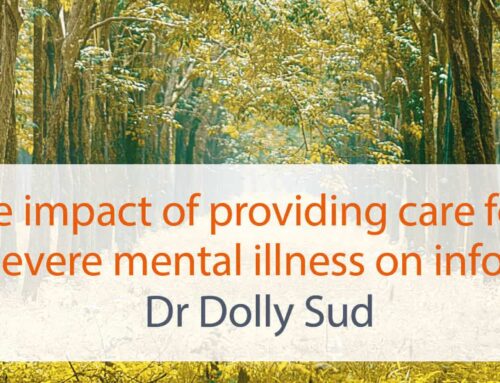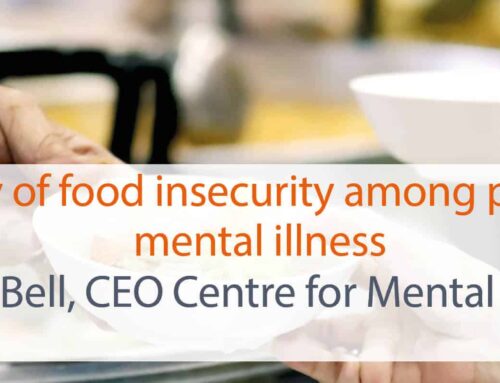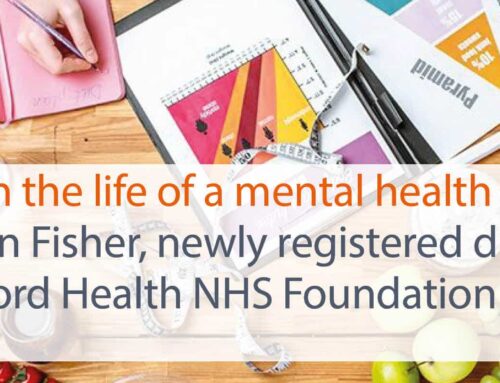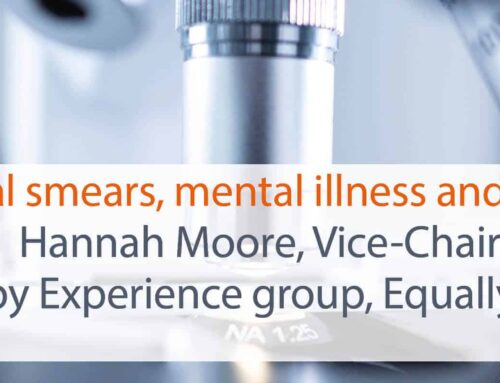Jan Hutchinson, Centre for Mental Health
An ongoing challenge for people with a severe mental illness is that the priority which is given to their mental health may reduce the likelihood that any physical health problems will be picked up at an early stage. This can significantly reduce their quality of life and, in some cases, lead to avoidable premature death.
The initiative to offer people on the practice SMI register a Physical Health in Severe Mental Illness (PHSMI) check has been established to address this. However, for some people the invitation to attend passes without response year after year.
Equally Well UK, a collaborative of organisations, clinicians and people with lived experience aiming to improve the physical health of people with a mental illness, is hosted by Centre for Mental Health. NHS England recently provided outreach funding through integrated care systems (ICS) to enable primary care networks to reach out to people who may struggle to attend the GP practice for their checks. Equally Well UK was asked to look at how local areas are using this outreach funding. The report provides a fascinating insight into the creativity of local areas in making the PHSMI check easier to access and acceptable to more people restricted by their mental health problems.
People with lived experience told us about the barriers they have faced in accessing their PHSMI check – such as difficulties with travelling to the practice, concerns about what the health check will entail, and what will happen after the results are obtained. Using the outreach funding, practices around the country have developed initiatives such as partnering with voluntary sector organisations whose staff are able to explain the process to patients and to offer practical support, travelling to the appointment with a patient, and talking to them before and after the health check. Other areas have used portable point-of-care devices to take the testing kit out to people living in residential care, or their own home, or to provide the check in a community venue more familiar to those patients. The Equally Well UK report found that the percentage of people on the SMI register who have received a check as a result of the outreach has been raised significantly.
Many areas involved people with their own lived experience of severe mental illness in designing the outreach, and have created posters, leaflets and even videos (subtitled in community languages) explaining the benefits of the PHSMI check and encouraging people to speak to their mental health professionals about accessing the check for themselves. Even small changes such as sending the invitation letter in a handwritten envelope, which is more likely to be opened than something which looks official and could cause a person distress, has proven to be helpful.
The benefits of people attending a health check for the first time have been numerous. People have been referred to treatment pathways for conditions such as diabetes and smoking cessation. Some have had further explorations for more serious illnesses and conditions. The use of outreach funding has been so successful that some areas have identified recurrent funding for the employment of community navigators who help people individually to access their basic health check and to implement new activities for a healthy lifestyle, which reduce risks to health and save lives.
PHSMI checks are a simple but effective way of supporting people at higher risk of poor physical health to have the opportunity to be ‘equally well’. Areas which have approached this in a person-centered and innovative way have seen significant uptake in the numbers of people coming forward and benefiting from the checks.
For further information please contact Leila Reyburn, NHS England, PHSMI Leila.reyburn@nhs.net or Shizana Arshad, Equally Well, Shizana.arshad@centreformentalhealth.org.uk
This blog also appears on the NHS Networks site.






